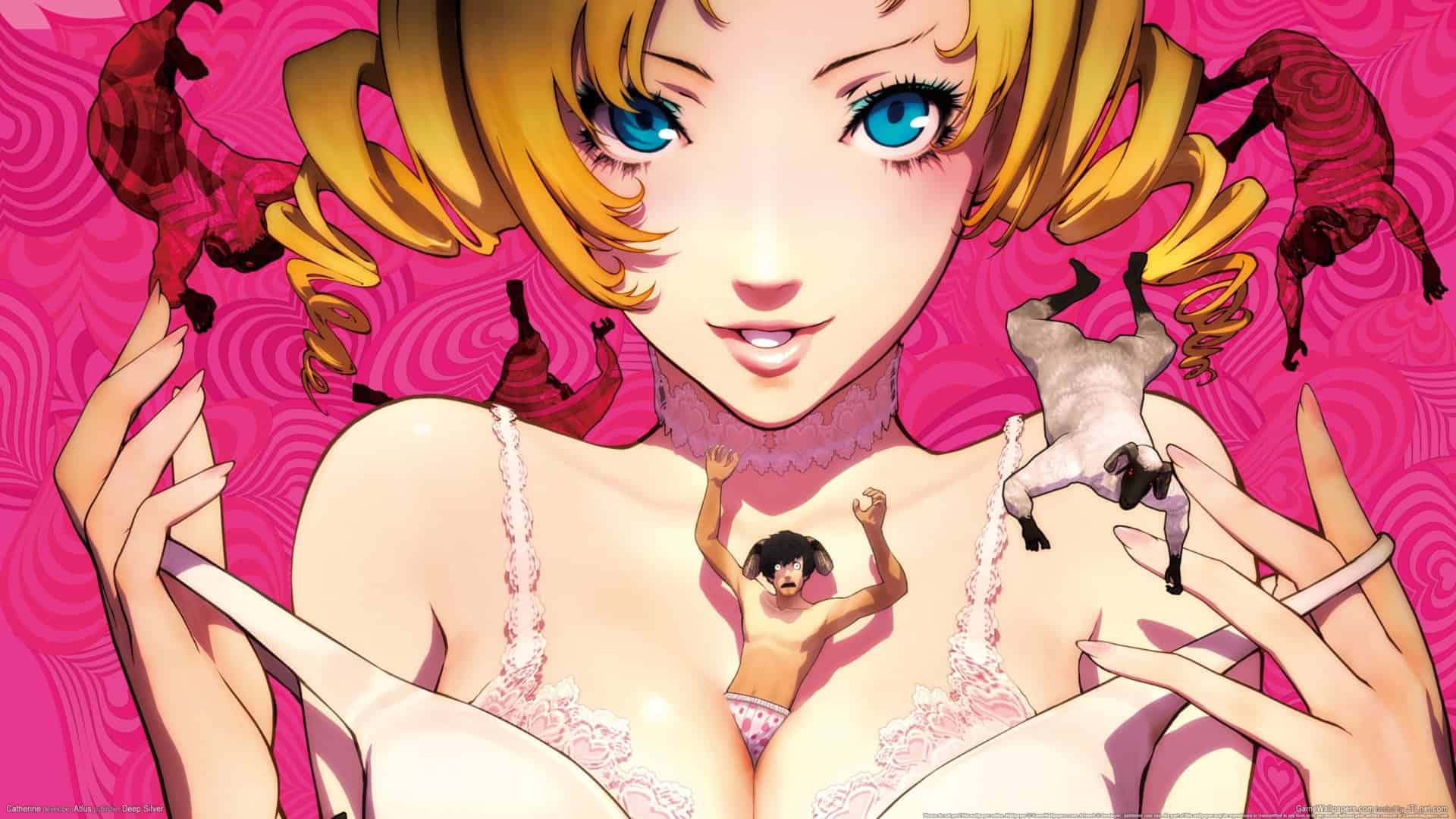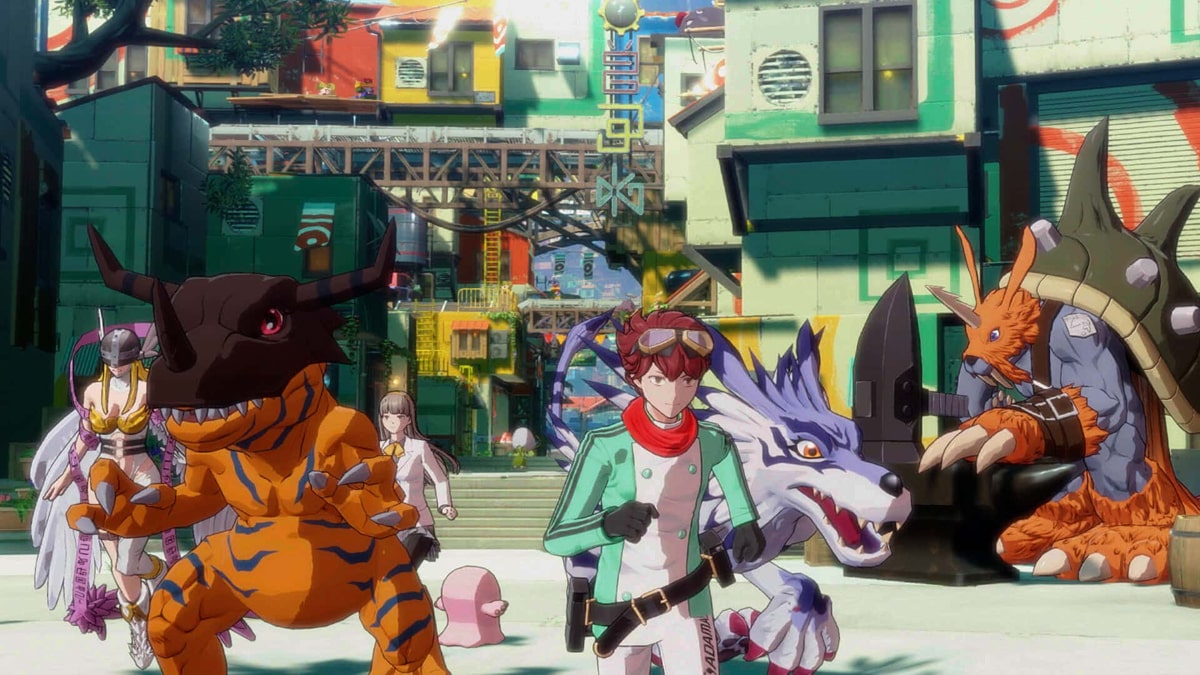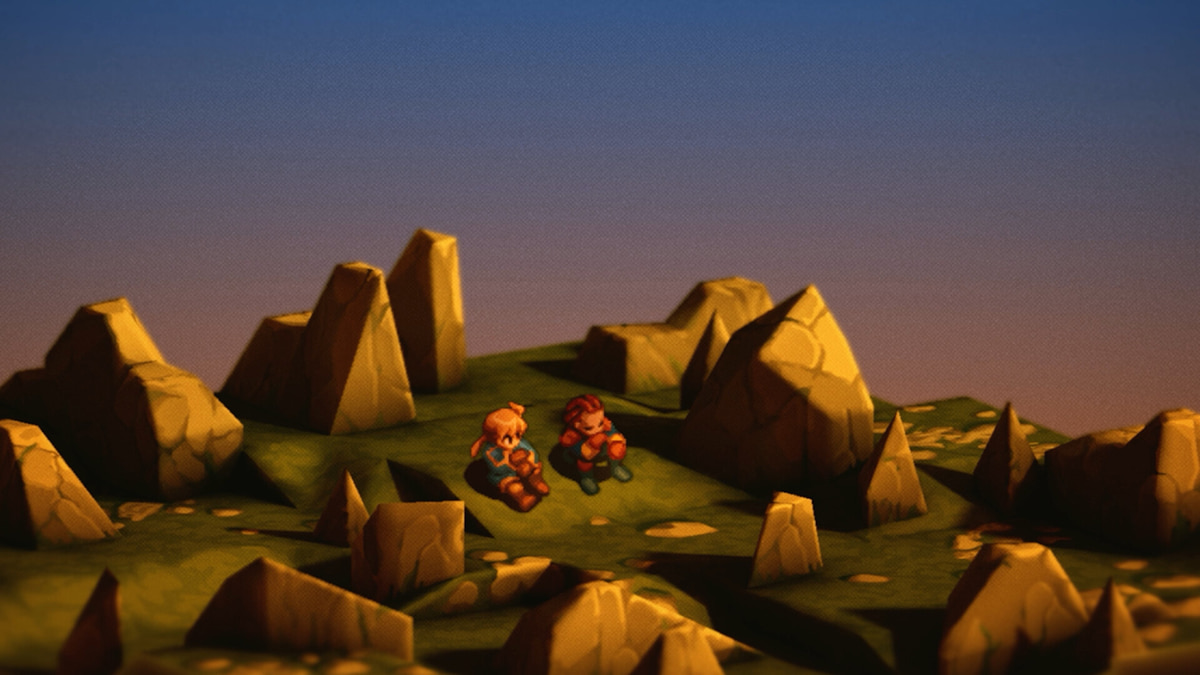You can trust VideoGamer. Our team of gaming experts spend hours testing and reviewing the latest games, to ensure you're reading the most comprehensive guide possible. Rest assured, all imagery and advice is unique and original. Check out how we test and review games here
I’ve got a doozy for you: Does life begin or end at marriage?
That’s one of the first of many questions Catherine poses directly to its players, giving the option to choose a simple binary response – yes or no. Well, does it?
Marriage is also something on the mind of Catherine’s primary character, Vincent Brooks. He’s an aimless 32-year-old who spends his days working with computers and his evenings posturing with his friends down the local, and right now he’s perfectly content with living out his days on pause thank you very much. But life refuses to let Vincent stay idle, and his overbearing girlfriend Katherine is pushing him towards marriage, parenthood and abandoning his creature comforts. It’s all too much for him to take in, so during his waking hours Vincent frets about his next steps in life, and at night he’s plagued by horrible nightmares that force him to move forwards, onwards and upwards if he wants to stay alive.
During these nightmare sequences you’ll find yourself up against disjointed walls of blocks, and must shift them around in order to ascend these cuboid cliff faces as the ground slowly disintegrates. These bad dreams play to their own wonky logic, allowing blocks to lock in place mid-air provided a single one of their edges is connected to something else, and Vincent’s spritely frame isn’t limited to pushing solitary blocks – he can bosh a whole row at once, but can only climb them one by one.
Catherine, then, is essentially about how getting from A to B can be fraught with internal and external difficulties, and the human cost of both responsibility and freedom. But Vincent also sprouts sheep’s horns in his nightmares, for the purposes of an elaborate metaphor that plays out as the game progresses, and roams around in his polka dot underwear while clutching his trusty pillow. And he keeps bumping into other sheep, many of whom remind him of the other drinkers at the Stray Sheep Bar – who are also having lots of bad dreams themselves, though nobody can remember them during the day. Oh, and men keep dying in their sleep. Is this all connected, do you think? (spoiler: it is, yes)
Then there’s Catherine the character, a vivacious, young and blonde sexpot who Vincent finds himself waking up next to every single morning – though he can’t remember how it happens, oddly. She’s got her va-va-voom crank stuck on 11, and she’s also crazy; the chaos to Katherine’s order.
So begins the awkward love affair that Vincent finds himself embroiled in, told out in subtle and affecting cutscenes – which is good, considering they make up a large chunk of the game. The competent voice acting helps push the story along, with players given the occasional this-or-that question to choose from. Your mandatory responses cause an on-screen morality gauge to flick one way or the other, as does replying to text messages when Vincent spends his evenings getting smashed in the bar.
Players flick back and forth between conversational cutscenes and block-pushing puzzles, a disjointed criss-cross of styles that starts to irritate the further into the game you get. It certainly doesn’t help that the game is also really, really chuffing hard, and the actual difficulty curve of its intricate puzzles will knock most players for six (I unashamedly wound the difficulty back to Easy on my first playthrough and still found it pretty challenging). And while the game introduces a variety of block types – springs, bombs, slippy-slidey icey ones – most players will find themselves fatigued long before the game’s denouement.
The setting of its world is enough to keep you ploughing through, however. But this is a storyline that shies away from making clear judgements, with its creators leaving their tale purposefully vague in the hope to have players decide – though the complementing cast offer their own varied opinions. Rugged Orlando scoffs at the idea of commitment and marriage, idealistic Jonny hides a secret in his search for a soulmate, and the virginal Tobias longs for monogamy.
Yet this attempt at open-ended storytelling robs the game of its ability to advance the narrative beyond its core concept. Katherine is obsessively maternal and aloof to a fault, Vincent is spineless and Catherine is always a bubbly, barely clothed sex-fiend with a penchant for snapping naughty photos on her cameraphone and a suggested fondness for engaging in some of life’s more adventurous sexual activities. Then the final act rolls around, and all the characters immediately change based on the players’ answers throughout the game.
Perhaps I’m just bitter and disappointed. Catherine attempts to explore themes previously untouched by the medium, which is exciting, but decides answering them sounds like way too much bother and wraps everything up with a silly supernatural conclusion. It’s a game afraid to legitimise its own plot. And because, hey, this is more than most publishers are willing to attempt, there’s a tangible sense that the audience is just supposed to just sit and accept it, this is the games industry, after all, where games about fidelity and matrimony are advertised as a titillating old romp that’ll help young boys go from six to midnight.
It’s a shame the ending lets the game down, then, as Catherine presents an intriguing proposition for the human condition – that life will force all of us into a crossroads, and it’s only through grabbing the sheep by the horns that we can really become ourselves. Push the wacky surrealism aside and you’ve also got a detailed, down-to-earth world that you’d never expect as you first slide the disc into the tray, alongside a set of subtle questions that will invoke sentiment and thought.
This is a game that’ll stick in your brain by virtue of originality alone, then, but if Catherine can’t take itself seriously then why should we?
Version tested: PlayStation 3
Catherine
- Platform(s): PC, PlayStation 3, Xbox 360, Xbox One
- Genre(s): Action, Adventure, Puzzle, RPG

/https://oimg.videogamer.com/images/9e7a/catherine_1.jpg)






